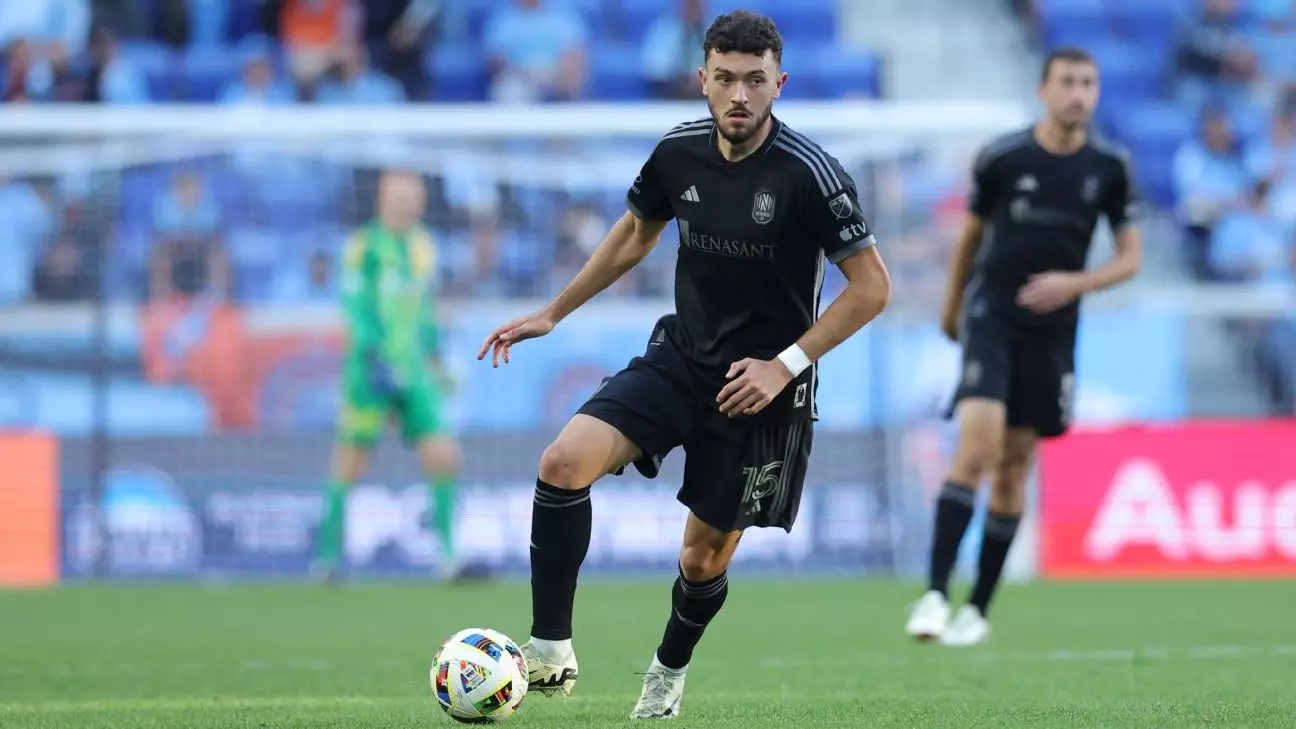In a significant shake-up for Australia’s national soccer team, head coach Tony Popovic has initiated changes to the roster in response to recent injuries. Patrick Yazbek of Nashville SC has been summoned to fill the gap left by the injured Massimo Luongo, who had to bow out of the crucial AFC World Cup qualifiers against China and Japan. Luongo’s inability to play stems from an ankle injury sustained prior to Ipswich Town’s 4-1 defeat by West Ham United. As injuries mount, the roster’s depth is being tested, especially with fellow midfielder Connor Metcalfe sidelined due to a leg injury sustained during St. Pauli’s recent Bundesliga match.
The call-up of Yazbek and Macarthur FC’s seasoned player Luke Brattan is emblematic of the challenges facing the Socceroos, as they aim to revive their prospects in the ongoing World Cup qualifying campaign. These selections highlight not only the urgency of the situation but also the necessity for emerging talents to step up amidst adversity. As the qualifiers approach, the performance of these new players may very well dictate Australia’s chances of entering the global stage once again.
With Australia currently occupying the fifth position in Group C—a meager one point from two matches—the stakes couldn’t be higher. The team has suffered defeat against Bahrain and managed only a lackluster draw with Indonesia, putting them five points behind group leaders Japan and three shy of Saudi Arabia. This looming challenge of needing a ‘must-win’ against China amplifies the urgency for the Socceroos’ squad to find their rhythm.
Midfielder Riley McGree conveyed the collective sentiments and challenges the team faces. He acknowledged that Australia’s style of play involves breaking down teams that tend to adopt a defensive posture, which can foster frustration. McGree went on to emphasize that success is not reliant on any single player but rather on the collective capability of the whole team. As the squad gears up to confront these vital matches, the need for collaboration, skill, and tactical awareness is paramount.
Acknowledging the immense pressure of such high-stakes matches, McGree offered a compelling perspective: “Pressure is a privilege.” The ability to transform pressure into a motivating force can lead to remarkable outcomes—both individually and as a team. For McGree, who recently returned from injury after missing two matches, this transition may be crucial in fostering a dynamic shift for the Socceroos under Popovic’s leadership.
As both a seasoned player and an attacking midfielder, McGree’s return gives the team a shot of creativity and dynamism during a critical phase in their qualifying campaign. His insights about adapting under Popovic’s fresh management highlight the exciting possibilities ahead. New strategies and directions under different leadership can provide the Socceroos a much-needed edge as they navigate the upcoming fixtures.
As the Socceroos brace for these qualifying matches, they must confront not only their immediate opponents but also the expectations that accompany the quest for a World Cup berth. The road ahead is riddled with challenges, underscoring the importance of formation adaptability and tactical ingenuity. The pressure of qualifying for an event as monumental as the World Cup will hang heavy over the team, yet this challenge also comes with the opportunity to showcase their resilience and talent.
For now, all eyes will be on the matches against China and Japan, where the true character of the Socceroos will be put to the test. The urgency to gather points will serve as the ultimate motivator. For players like McGree, Yazbek, and Brattan, the chance to represent their country on such a significant platform marks an invaluable opportunity. As the World Cup qualifying narrative unfolds, the paradox of pressure and privilege will define not only their journey but also the future of Australian soccer on the international stage.

